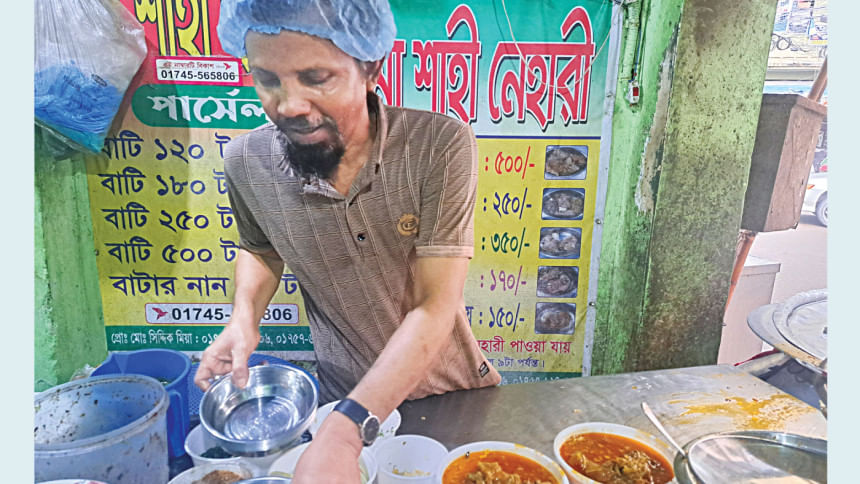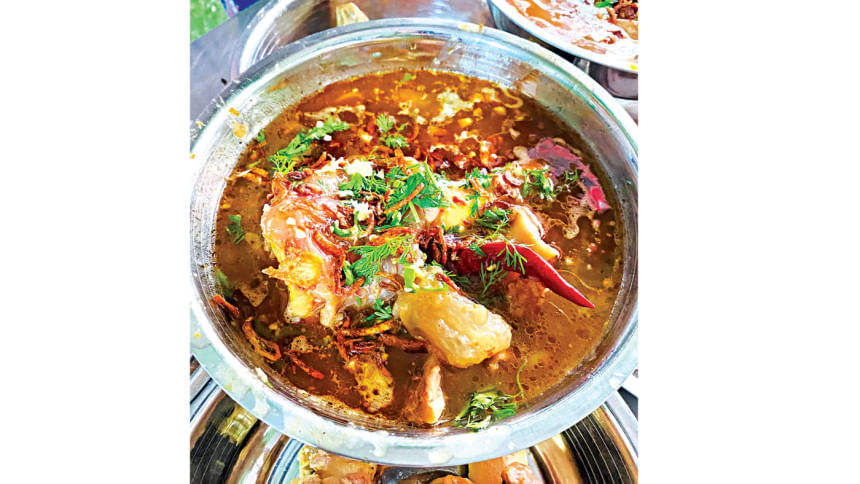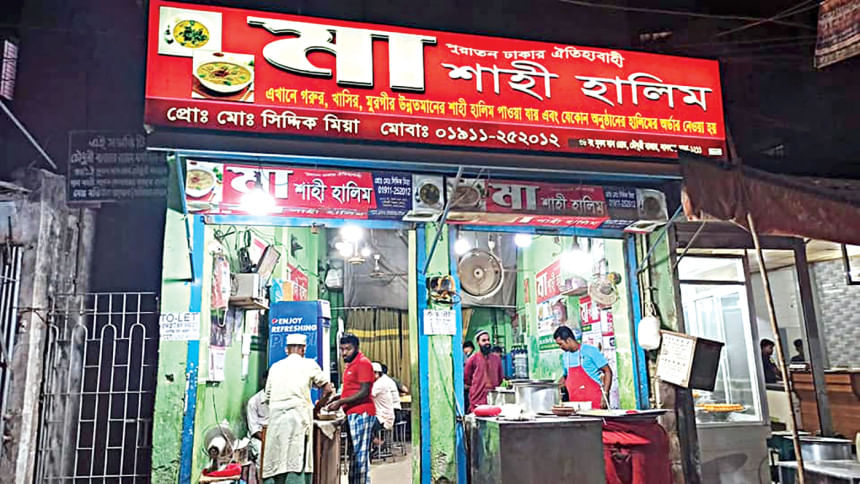Why Old Dhaka’s Siddiqui Bhai nihari is a must‑try

Recently, I drove to Subal Das Lane in Lalbagh to try the latest breakfast craze that has captivated Dhaka in the metaverse: Siddiqui bhai's Nihari.
Nihari is haute cuisine prepared with premium ingredients by specialised chefs, and it isn't an everyday meal. But weekend breakfasts call for something special, both in the old and new parts of Dhaka. Thanks to food vloggers and bloggers, Siddiqui bhai is on everyone's radar, making our weekends extra palatable.

Served in his hole-in-the-wall restaurant, Maa Shahi Halim, this delectable shank broth is available for a short window of time, mainly till his big stock pot or "degchi" is emptied of its contents.
I started my journey at half past six in the morning, and by the time I reached 40 minutes later, I was among the last few to get myself a bowl.
"It is Friday, and weekends mean a rich and fancy breakfast. Nothing is fancier than a big bowl of nihari made by Siddiqui bhai. His portions are big and filling, the shanks -- soft kuruli meat, pulled beef, and the gelatinous chunks of bone marrow -- are to die for. I have come from Uttara to join my friends from Gandaria for this delicious broth, and we do this quite often, at least two weekends in a month or more," says Parvez Malik, a young executive working in a bank.
Parvez's group was wiping off the last bits of nihari with a butter naan and praising the chef for his perfect dish.
Nihari is a melt-in-your-mouth, slow-cooked nalli (bone marrow) stew made with meaty bones that have a lot of tissue, cartilage, and marrow, like oxtail, shanks, and knuckles. The slow-simmer breaks the collagen to make a gelatinous bone broth with a jiggly consistency.
"There is no secret to my recipe; the flavour and taste depend on slow cooking for a long time. The spices I add besides the regular ones are long pepper, star anise, galangal, allspice, and organic dried rose petals," says the amiable chef, who starts cooking his nihari right after maghrib prayers and continues till the crack of dawn.
"One big metal degchi or stock pot full of shanks, hock joints, and premium bone-in beef Kuruli, which is rich in flavour, tender, and excellent for slow-cooked dishes like stews, soups, and broths, goes through a 17-hour slow-cooking process. I do it myself, as it requires expert attention," Siddiqui says while serving a bowl to his customers.

He prefers doing this himself because the taste lies in the final mix. "I insist on serving because my clients want various sorts of meat cuts in their bone marrow broth. Some prefer soft meat chunks, some pulled meat, some add mogoj or offal, but the caramelised onions and a spoonful of my special spice mix make my nihari bowl so enjoyable. It should be served hot and eaten with roti or naan fresh from the tandoor," he adds.
His countertop has separate pots of simmered mutton, beef, and chicken. And according to his client's choice of meat, he adds his soup stock that is prepared separately in a big degchi, and then, as a final touch, he adds his garnishes.
Siddiqui's scouts roam the local cattle markets of old Dhaka every morning to buy almost 50 kg of paya or shanks, which is the cut from the lower leg of the cow, containing sinewy muscles and often, bone with marrow. And on Fridays, they make extra to cater to the weekend rush.
In the evenings, when the all of the nihari craze dies down, Siddiqui bhai then serves Haleem. I will write about his Haleem later; for now, I shall savour the nihari.

 For all latest news, follow The Daily Star's Google News channel.
For all latest news, follow The Daily Star's Google News channel. 



Comments